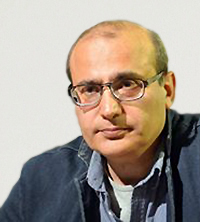
Due to massive public campaigns in Armenia in 2018, the power has changed. The basis of the new public discourse is the protection of the rights of “proud citizens”, the fight against corruption and the disclosure of illegalities by the former authorities and bringing back the money that were “stolen from the people”. The acting government is making populistic calls, organizes mass events, but the government’s action agenda still remains unclear.
Numerous human rights activists and civil society representatives have taken important positions in the parliament as well as in the government. In this regard, it should be assumed that these people have all the possibilities to accomplish all the ideas for which they have been struggling for years, but there are no cardinal changes or concepts of change. The main reasons, are supposed to be, the following two:
1․ a new political team, which is hastily formulated, has no political guidelines and plans yet, and everything is executed spontaneously;
2․there are still conservative notions in the society, especially towards religious liberties and LGBT people, which exploits the political opposition to hit the new government.
As a result, the proposed reforms are slowing down in these areas of human rights and the new authorities are extremely cautious on these issues.
On the other hand, the church of the majority, the Armenian Apostolic Church, also has certain problems: the church has closely cooperated with the former authorities and some part of the public blames them for it.
If in the early years of independence the church was perceived as an exclusive national structure, then public attitude towards it began to change, which was expressed by intensified criticism of the church in the media and social networks, which sometimes turned into just insults.
The reasons for such a sharp criticism are different. In our opinion, based on the analysis of the results of periodical monitoring of media related articles in the media, the first reason was the atmosphere of injustice in the country. In such a situation, the public was expecting that the Church would adapt the position of the defender of justice, which, however, did not take place. On the contrary, the church elite gradually grew closer to the ruling elite, sometimes providing services to the government that were perceived by the public as actions directed against them. As a result, the negative attitude towards power began to spread over the church.
The negative attitude of the public was especially generated by the life and behavior of high-ranking clergy, which was not particularly different from the behavior of prominent figures of power who did not enjoy trust. The other reasons are to look for intolerant views from time to time in the public speeches of cenobites, which can be regarded as manifestations of church’s public politics. These views are based on traditional stereotypes and contradict the Constitution of the Republic of Armenia, legislation and in their nature are aggressive and intolerant.
The church has been trying to formulate its social conception since the 2000s. Even a special office has been established for this purpose, but there is still no public outcome from it. At the same time, in their public speeches, church officials continue to sometimes call for extreme intolerance. Public schools, the armed forces and other areas in which the church has access, often with a flagrant violation of the law, are also perceived negatively by a large part of the population. Moreover, due to the constitutional and legislative amendments, some of the formulations that appear to be misinterpretations have appeared in those documents, which question the existence of Armenia as a secular state.
The current situation in Armenia is incomprehensible and the representatives of religious organizations can not clearly state what kind of changes really have taken place. On the one hand, the calls for hatred towards religious organizations have dropped dramatically, on the other hand, any systematic changes that would ensure the protection of their rights, even after the change of the current government, are not formulated yet, and moreover, are not even envisioned.